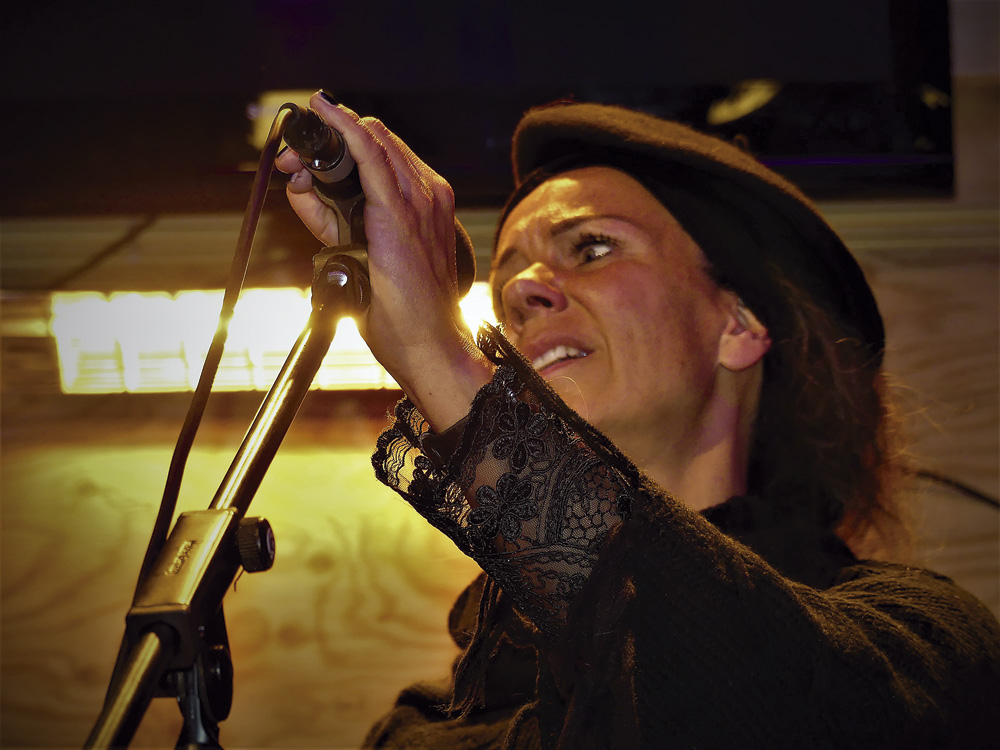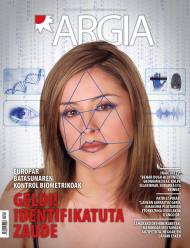To drive the use of frisona they have invented from scratch their own bertsolarism from bertsolarism.
- Fascinated by the social influence of Basque Bertsolarism, half a dozen people have created an oral improvisation of frisian from scratch to encourage the youngest to play with the language. In the absence of tradition, the basic standards of bartelje have been adapted from the Basque Bertsolarism.

“In Frisia we have not had the dictatorship of Franco, the relationship between the Dutch and the Frisian is not conflictive,” said the creators of the bartelje project, contextualizing the socio-linguistic situation of that quiet coastal region of the North Sea. Frisians have not seen their language in a state of life or death, there are no enthusiastic movements in favor of Frisian or deep awareness. But like all minority languages, the Frisian is at stake: if no action is taken, the future will be shaken.
It was precisely in Bertsolarism in Euskera that a group in favor of the Frisian saw the model of activation of society. Although half of the inhabitants of Friesland know Frisian and the usage data are good, most consider it as a domestic and colloquial language, so in the public sphere Dutch and English are used, and in formal there is nothing to say. They believe that oral improvisation can be an excuse to play with the tongue and a means to take the frisio out of the plaza.
Bart Kingma and Mirjam Vellinga are part of the group that has launched this innovative project. He is film director and recorded last winter a documentary about Kingma and Bertsolarism in the Basque Country. Among other things, he was at the end of BEC and in a class of regulated teaching bertsolarism. The velling, for its part, is a member of the Afûk association, which is in charge of promoting the frisio. He also participated in the end of December at BEC.
Both were fascinated by the influence of Bertsolarism on Basque society. They have mentioned the “magic” that has been created through language, and they have highlighted the progress that can be made if there is something like that in frisio. On the return of the visit to the Basque Country they thought of starting an improvisation in Frisian, so they are still at the beginning. “What we are looking for is that language is not just a practical means of communication, that it has other functions,” says Velling. “We are looking for new audiences, but also a new use of language. Anyone who never wrote a poem in frisian may make a frisian verse, because it’s fun.”
In the absence of oral improvisers in Frisia, the candidates who take advantage of this activity have been sought. First, they invited a number of poets to be encouraged to improvise. “Some 40 poets came and many of them offered to try,” says Kingma. Although the first tests are already being carried out, Velling has assured that this “magic” of Bertsolarism has once appeared: “Some have dared to sing and something has come out of it.”
Basques as a model
However, improvisation in fries has a great drawback: As it emerges from scratch, all features, including standards, have to be defined, and that is not an easy task. The same name, bartelje, is new invented. “In Frisia there are not many traditions of their own, perhaps related to sport and other similar ones, but not to language. We don’t have traditional music, or oral improvisation,” Velling explains.
For the construction of Bartelje's personality, Bertsolarism has been used in Basque and the most important rules have been adopted: the way of laughing, the measure, singing to cappella, etc. “We have learned from the Basque useful tricks to create an improvised oral poem, for example, to start the bertso from the last sentence and build everything else according to that is a good starting point,” says Velling.
They have particularly appreciated the cooperation of the bertsolaris in the field of melodies, as they have taught them the most appropriate melodies. Frisian has become a group of traditional songs that have been preserved on rare occasions and that use popular pop songs to create new melodies. The music of Elvis Presley has a great success among those who have started playing in Bartelj.
Without the help of instruments, to capture it, they also have perfectly defined the rule to sing. “We propose introducing guitars, drums, etc. Not to look too obsolete, looking at young people,” Kingma says. “But we decide no, otherwise we would be too close to making pop music and we want to separate ourselves from that, bartelje is something else.”
Social impact
Oral improvisation and Bartelje’s boosters know that this can be an effective tool to attract people. In any case, they have also shown their willingness to deal with serious issues, as at the end of BEC they saw that bertsolaris use a discourse linked to the concerns of society and as a result, besides the playful aspect, Bertsolarism has a social component.
“In that first session that we did with the poets, we saw that many of them came up onstage as if they were humorists, saying, “Let’s see if we’re all going to laugh and laugh!”, explains Kingma. “Making humor is OK, of course, but we must prevent the improviser from being a clown, we ask them for seriousness.”
“In bartelj we want Basque Bertsolarism to be similar, that is, to talk about deep issues of society, to generate a debate,” added the film director. “Here are some social issues: Immigrants, caring for the environment -- I hope Bartelj will help us develop our identity and expand our consciousness. If we were to break taboos, as bertsolaris do, it would be a great thing.”
The intention of Bartelje’s drivers is also to influence the leap from frisio to the private context to the public. “We don’t use frisio too much in the public, for example in offices or in official formalities,” says Velling. He was surprised to see that the Basque notes in public buildings in the Basque Country were normal.
Despite the constant pressure of the strongest languages, awareness is gradually awakening among citizens. According to Mirjam Velling, “as in the Basque Country, Frisian is in some places with strength in the language and in others not so much. More and more people accept the benefits of multilingualism and try to educate their sons and daughters in frisian.” However, they consider it impossible to attract those who live exclusively in Dutch, with exceptions. “For Bartelj to do so would be nice, but at the moment it’s nothing but a dream,” says Bart Kingma, “those who only know Dutch don’t have an aggressive attitude towards Frisie, but they don’t have interest in our language either.”
In different parts of the world, the challenge is to maintain and strengthen the traditional oral improvisations that are about to disappear. The Frisians have taken the opposite path, that is, they have created their own improvisation from the void and have socialised it. Even though Bertsolarism accompanies them, Kingma and Velling know that it's not going to be easy. “We do not have a tradition of 300 years, and Bertsolarism has a lot of rules and we have to define and write our own rules, because otherwise we will not be able to spread the bartelje in society.” The hardest thing is to take the first step, and that, at least, has already been done.
Maialen Lujanbioren bertso ezaguna gogoan, esan dezakegu barteljek bere herria sortzen segi nahi duela frisieratik eta frisieraz. Baina frisieraz soilik ez, eskualdeko edozein hizkuntza txikitan baizik. Frisian hizkuntza txiki ugari hitz egiten baitira, gehienek ehunka hiztun baino ez dituzte eta ahozko esparru informalera mugatuta daude. Horietako batzuk dira bildts, stadsfryske, hylpers, kollumers eta stellingwerfs. Denak dira frisieraren hurbileko ahaideak, nederlanderaren eta frisieraren arteko nahasteren bat edo behe saxoniera hizkuntzaren aldaerak.
Bada, horiek guztiak ere Frisiako ondare linguistikoaren parte direla aintzat hartuta, barteljen erabil daitezkeela erabaki dute, frisieraren pare. Hain zuzen ere, bartelje bultzatzen ari diren dozena erdi laguneko taldeko kideetako bat, Gerard de Jong, bildts hiztuna da. Bart Kingmak zehaztu duenez, nederlandera erabiltzea “debekatuta” dago barteljen, gainerakoak baimenduta: “Hizkuntza txiki-txiki asko ditugu hemen, polita litzateke jendeak hizkuntza horietan ere abestuko balu”.
Sei hizkuntza landuko dituzte Gasteizko Euskararen Etxean ikasturtean zehar. Txerokieraz, frisieraz eta esperantoaz gain zeinu hizkuntzak, kokama eta kaxubiera aztertuko dituzte.












